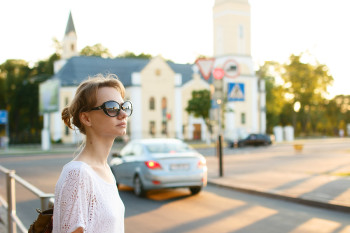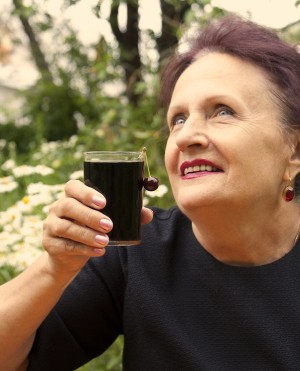Lois Maharg
Latest posts by Lois Maharg (see all)
- Herbals for Insomnia? Now You Can Test Them at Home - Jun 21st, 2017
- Exercise Improves Sleep, Preserves Mental Fitness - May 5th, 2017
- Prebiotics Improve Stress Resilience and Sleep - Feb 20th, 2017

It happens every year in the spring: someone writes in to The Savvy Insomniac complaining of an inexplicable onset of insomnia. No stress is involved, no abrupt change in circumstances.
Here’s how a reader described the problem this year:
“Every year at the same time (between the end of April and the end of June, I don’t know why?), my sleep becomes very capricious. I don’t sleep when I go to bed and, inexorably, I have to start again a new ‘sleep restriction.’ I feel pretty jaded because it’s difficult!”
Whenever you’re having trouble sleeping, it helps to tighten up your sleep window and stay out of the bedroom until you’re really sleepy. But if insomnia tends to strike at about this time every year, the problem may have to do with lengthening days. The solution may lie in reducing your exposure to sunlight.
Seasonal Variation in Light Exposure
The further away from the equator you live, the greater are the seasonal differences in your exposure to sunlight. Not many comparative studies have measured how these seasonal variations in day length affect people’s sleep. But one study published in 2012 compared the sleep timing and quality of people living in Norway (far from the equator) and others living in Ghana (close to the equator) in the winter and the summer.
Ghanaians rose and went to sleep at about the same time in both seasons. The Norwegians rose 32 minutes earlier (and went to bed 12 minutes earlier) in the summer than in the winter, suggesting that seasonal variation in day length can affect our internal clocks. When the days are longer and sunrise is earlier, people may tend to get up (and go to bed) a little earlier than they do in the winter.
Seasonal Affective Disorder
However, the Norwegians in this study experienced more insomnia and reported lower moods in the winter when the days were short. This finding aligns with the results of other research—from Norway, for example, and from Finland—showing that in the late fall and winter, insufficient exposure to daylight is associated with seasonal affective disorder, or SAD, and trouble sleeping.
I see anecdotal evidence of this phenomenon every year. Readers write in complaining of insomnia that typically starts in November or December. The solution to this seasonal insomnia is bright light therapy, appropriately timed.
Too Much Light?
Other people report that their insomnia typically occurs in the spring and summer. There’s a dearth of research on this phenomenon, but I suspect that excessive exposure to daylight could trigger insomnia in those who, for whatever reason, are particularly sensitive to light. Light blocks secretion of melatonin, a hormone helpful to sleep, so restricting your exposure to bright light early in the morning and later in the evening may help.
Here are suggestions for how:
- Install light blocking curtains on bedroom windows so the morning sunlight doesn’t wake you up too early
- Draw blinds and curtains in your home before the sun sets and keep indoor lighting low in the evening
- Wear sunglasses if you’re outside in the sunlight very early in the morning or after about 8:30 p.m.
- Steer clear of devices with screens in the run-up to bedtime.
- Buy a comfortable eye mask and wear it when you sleep
If you find eye masks uncomfortable, perhaps a towel wrapped around the eyes and head will do the trick. A few years ago a neuroscientist–sleep researcher told me she was super sensitive to light at night, and this was her way of solving the problem. Do whatever works!
Originally posted on The Savvy Insomniac, May 31, 2016
Published in Body, SleepTags: exposure to sunlight insomnia light blocking curtains SAD seasonal affective disorder seasonal insomnia trouble sleeping








